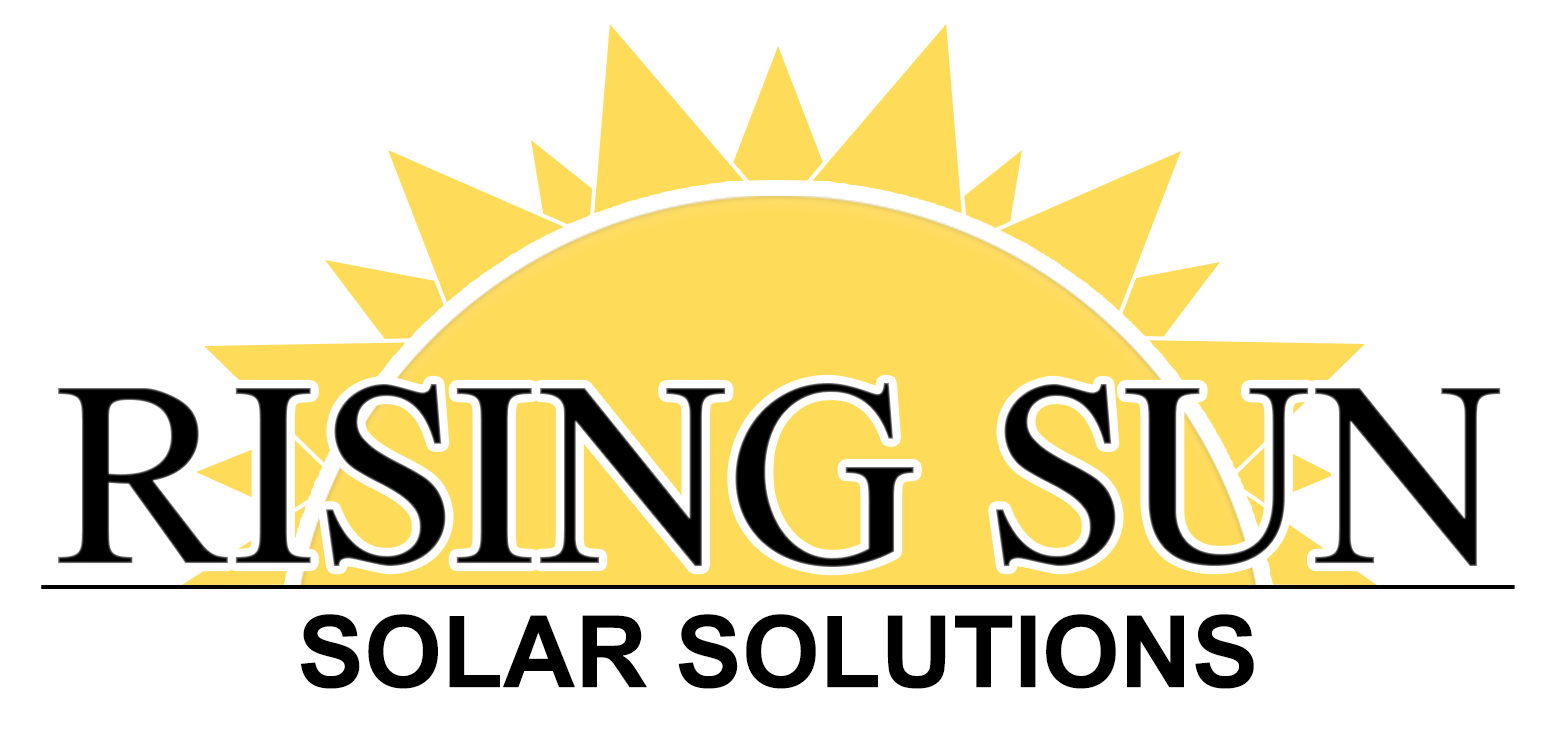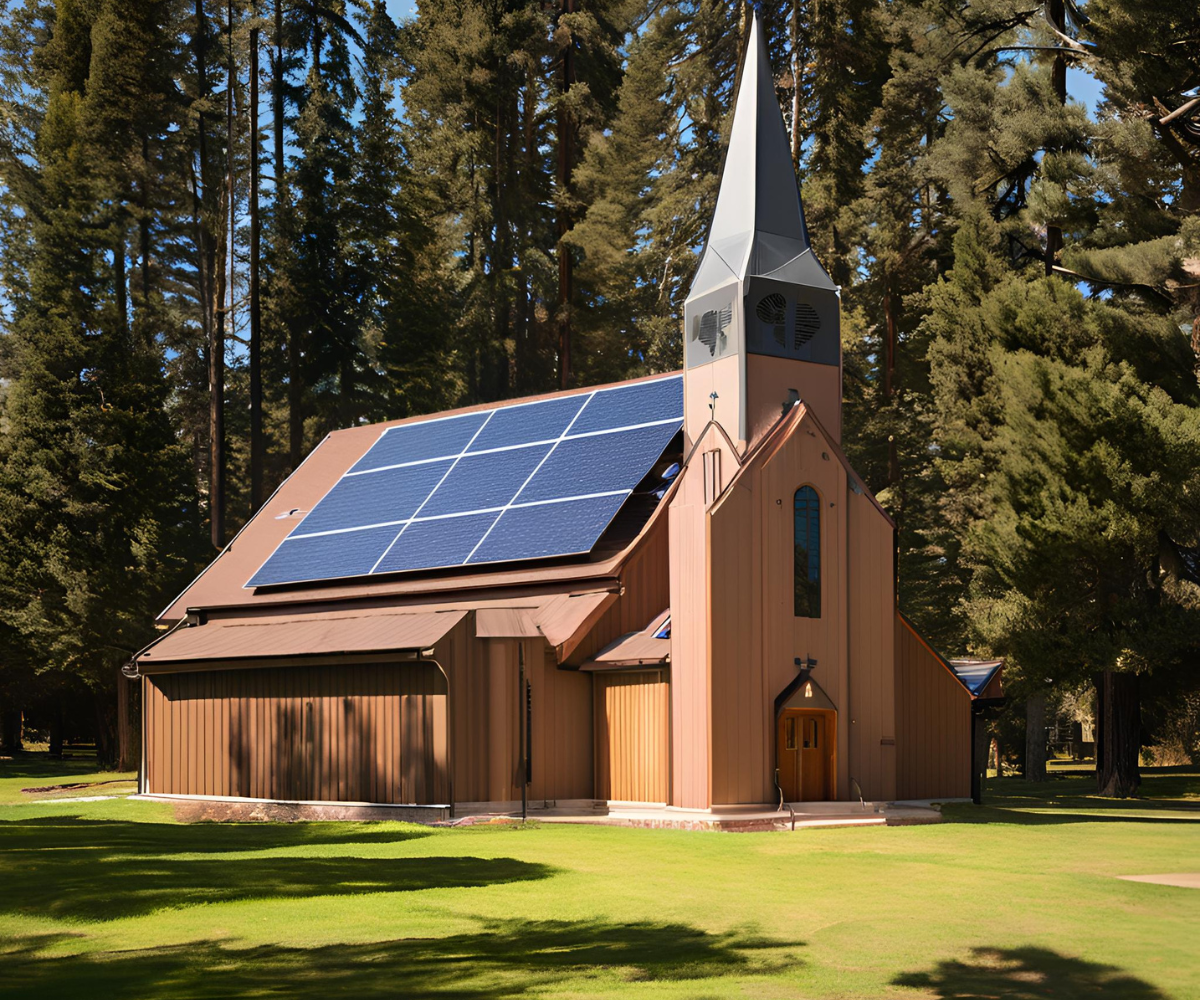A 15,000 sq/ft church could spend up to $22,500 a year on electricity—that is, without the solar panels to help them out.
Many people forget that churches and religious places of worship have operational costs. With expansive spaces, utility costs are among the highest and hardest expenses to budget.
Luckily, churches, which often have large rooftops and properties, are uniquely positioned to benefit from solar energy. Installing solar panels can not only help churches save on energy costs but also align with their missions of caring for the Earth and supporting their communities.
Explore the numerous benefits of solar panels for churches and how switching to solar can be a powerful and impactful decision in the article below.
Save Money with Solar Panels
Unlike most nonprofits or businesses, churches and places of worship aren’t used all the time or have regular business hours. However, they still need to be ready for services and community activities with ample power. This also means their energy needs may greatly fluctuate month-to-month.
Additionally, the unpredictability and consistent requirements of a church to serve the people of their communities means the lights and AC are on 24/7.
This situation makes solar panels for churches especially critical to lower electricity costs. Solar energy can provide enough power to either supplement or completely replace your church’s reliance on the grid.
Larger Roofs Mean More Solar Panels
One of the best benefits of solar panels for churches is that their structures have the space to create a large system.
The size of the unit affects your solar energy output, therefore, if your building has the space, then it will generate more solar power.
Tax Incentives Make Solar for Churches Affordable
Churches, as non-profit organizations, may be eligible for various tax incentives, grants, and rebates for installing solar panels. Programs like the Federal Investment Tax Credit (ITC) offer businesses a 30% tax credit, however, tax-exempt nonprofits like churches wouldn’t normally benefit from this solar incentive.
Luckily, the Inflation Reduction Act of 2022, extended this program to include nonprofits with the direct pay program. Now church solar project costs can be covered anywhere between 30% to 50%, making it even more affordable.
Long-Term Solar Investment Pays Off
While the initial cost of installing solar panels may seem high, it is important to view it as a long-term investment. Solar panels have a lifespan of 25 to 30 years or more, and the savings on energy costs can quickly offset the initial investment, leading to net savings in the long run.
Become an Environmental Steward
Churches play a crucial role in their communities and often advocate for social and environmental responsibility. By switching to solar energy, churches can demonstrate their commitment to caring for the planet.
Reducing Reliance on the Electricity Grid
Solar panels generate clean, renewable energy that takes pressure away from the electrical grid, lowering the need for fossil fuels and other non-renewable sources of power. This may mean fewer power outages and strain that hikes up utility prices.
Showcasing Sustainable Practices
Embracing solar energy aligns with the principles of sustainability and responsible resource management. It shows that the church is taking proactive steps to reduce its environmental impact and promote a sustainable future.
Taking Advantage of Educational Opportunities
Installing solar panels provides an excellent opportunity for churches to educate their congregations and communities about the benefits of renewable energy and the importance of environmental stewardship. This can inspire others to take similar actions in their own lives.
Gain Energy Independence
Relying on traditional energy sources can leave churches vulnerable to fluctuations in energy prices and supply disruptions. Solar power for churches offers a way to achieve greater energy independence and stability.
Offering Stable Energy Costs
With solar panels, churches can produce their electricity, reducing their dependence on external energy providers. This can provide greater predictability and stability in energy costs, making it easier to budget and plan for the future.
Saving Energy for a Rainy Day
Solar energy systems can be equipped with battery storage solutions, allowing churches to store excess energy generated during sunny days for use during cloudy days or power outages. This enhances the resilience and reliability of the church’s energy supply.
Enhance Property Value and Appeal
Installing solar panels can also enhance the value of church properties. As energy efficiency and sustainability become increasingly important factors for property buyers, having a solar energy system can make the church more attractive and valuable.
Attract New Donors
Donors and benefactors are often more inclined to support organizations that demonstrate a commitment to sustainability and responsible resource management. By investing in solar energy, churches can attract more donations and support from environmentally conscious individuals and organizations.
Increase Property Value
We now know that solar panels can increase home values. The same is true for churches and places of worship. People appreciate timeless technology like solar energy because it saves them money, making the property they buy easier to maintain and operate.
Common Misconceptions about Solar Panels for Churches
As the adoption of solar power continues to grow among churches, there are still some common misconceptions that can prevent religious institutions from taking the leap. It’s important to address these misconceptions to help churches make informed decisions about the viability of solar panels for their specific needs.
Misconception 1: Solar Panels are Too Expensive for Churches to Afford
While the initial investment can be significant, the long-term financial benefits of solar power often outweigh the upfront costs. As mentioned earlier, there are numerous incentives available to help churches offset the installation costs, making solar a more accessible and affordable option.
Misconception 2:Solar Panels Require a lot of Maintenance and Upkeep
In reality, modern solar panel systems are designed to be low-maintenance, with minimal cleaning and maintenance required to ensure optimal performance. Many solar installation companies, like Rising Sun Solar Solutions, offer comprehensive maintenance services and installation warranties to help churches keep their systems running smoothly.
Misconception 3: Solar Panels Affect the Appearance of Churches
Some churches may also be concerned about the visual impact of solar panels on the aesthetics of their buildings. However, solar panel technology has come a long way, and there are now various design options available that can seamlessly integrate with the architectural style of the church.
By working closely with solar installation experts, churches can find solutions that enhance the visual appeal of their buildings while still harnessing the power of the sun.
Misconception 4: Solar Panels Can’t Handle the Energy Needs of Large Churches
There may be concerns about the reliability and consistency of the energy supply. While it’s true that solar energy is dependent on the availability of sunlight, modern solar panel systems are designed to be highly efficient and can provide a stable and reliable source of power, even during periods of reduced sunlight.
Additionally, as mentioned at the beginning of this article, churches and places of worship are equipped with large roofs to accommodate enough solar panels to offset their energy usage.
Helping Your Church Complete Its Mission With Solar
Solar panels for churches aren’t just to generate energy and save money. The truth is that solar power can improve the functionality of your church.
From budgeting to scheduling, having solar energy at your fingertips relieves the burden of deciding whether to remain open because of financial constraints.
Start the solar journey for your congregation by contacting Rising Sun Solar Solutions. We guarantee personalized service that creates a one-of-a-kind solar unit for your church’s specific needs.


